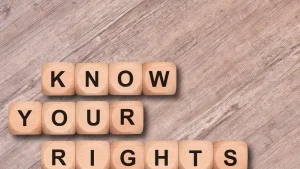Few things create instant stress like an unexpected call from a debt collection agency. When the caller identifies themselves as being from The Collection Bureau, it is natural to feel anxious, confused, or even intimidated. Debt collection is an industry that often uses pressure, urgency, and aggressive language, leaving consumers unsure about whether they are being treated fairly or legally. Many people immediately search for information about this harassment because the tone of the communication can feel overwhelming. Others attempt to confirm the authenticity of the contact by looking for the correct Phone Number before discussing anything about the alleged account.
The truth is this. Even if you owe a debt, and even if The Collection Bureau is a legitimate agency, you still have rights under federal and state law. Debt collectors cannot say anything they want, and they cannot call you whenever or however they choose. You are protected by powerful consumer laws that limit what agencies can do and provide you with several legal tools to stop the harassment, demand accurate information, and challenge incorrect claims.
This comprehensive guide explains who this is, why they may be contacting you, what harassment looks like, how to use your rights under the Fair Debt Collection Practices Act (FDCPA) and the FCRA, and when to involve a consumer rights attorney. The goal is to help you regain control, protect your mental and financial stability, and ensure that any collection activity against you follows the law.
Understanding The Collection Bureau
To respond effectively, you must understand who is contacting you. The name The Collection Bureau is used by several third party debt collectors across the United States. These agencies operate independently, but the name is commonly associated with collectors that pursue debts on behalf of hospitals, utility companies, telecommunications providers, local retailers, small businesses, and occasionally debt buyers.
Unlike creditors you may have dealt with directly, these agencies do not loan money or provide services. Their only job is to collect overdue balances that have been referred to them. That means that when you hear from them, they believe you owe money to someone else, and they have either been assigned or contracted to collect it.
Because multiple agencies share this name, verification becomes extremely important. Some agencies operate in good faith, but others have extensive histories of consumer complaints. Mixed reviews and inconsistent communication patterns often leave consumers questioning whether the person calling is truly from The Collection Bureau or whether they are dealing with a scammer using the name to intimidate people.
Why The Collection Bureau Might Be Contacting You

Debt collectors usually do not come into the picture right away. When you hear from The Collection Bureau, it generally means one or more of the following situations has occurred:
- 👉 You had a medical visit where part of the bill remained unpaid after insurance processed the claim
- 👉 You moved and a utility company issued a final balance that was never received
- 👉 You disputed a charge but the business still referred the account to collections
- 👉 You stopped receiving mail at an old address, causing previous billing attempts to be missed
- 👉 The original creditor sold your account to a debt buyer
- 👉 The debt is very old, and multiple agencies have handled it before
- 👉 You are being contacted mistakenly due to similar names or incorrect database information
Many consumers are shocked to learn that the debt is years old or that fees have been added over time. Others realize the debt is not theirs at all. Some discover that identity theft or clerical errors created an incorrect entry in a billing system. Whatever the case, you are entitled to get answers in writing before taking action.
What The Collection Bureau Harassment Looks Like
Contact from a debt collector is not automatically harassment. There is a difference between legal communication and abusive conduct. Harassment from them may occur when the agency uses tactics that cross the line into intimidation, dishonesty, or coercive pressure.
Common examples include:
- ➡️ Calling multiple times in a single day
- ➡️ Calling very early in the morning or late at night
- ➡️ Using threatening or aggressive language
- ➡️ Suggesting legal action that is unrealistic or exaggerated
- ➡️ Refusing to provide written proof of the debt
- ➡️ Insisting on immediate payment during the first call
- ➡️ Contacting your workplace after being instructed not to
- ➡️ Attempting to embarrass you by calling family members or neighbors
- ➡️ Using voicemail messages that sound alarming or unclear
- ➡️ Calling from numbers that do not match any verified Phone Number
Federal law strictly regulates these behaviors. You never need to tolerate disrespect, pressure, or misrepresentation, even if you owe money.
Your Rights Under the Fair Debt Collection Practices Act

The Fair Debt Collection Practices Act, or FDCPA, is the main federal law governing how collectors must behave. Whenever The Collection Bureau attempts to collect a personal, household, or medical debt, they must follow this law.
Under the FDCPA, a debt collector may not:
- ✅ Call before 8 in the morning or after 9 at night
- ✅ Call repeatedly with the intention of pressuring you
- ✅ Threaten jail or criminal charges
- ✅ Imply that ignoring the call will lead to immediate legal action
- ✅ Misrepresent the balance or add unauthorized fees
- ✅ Refuse to send written notice of the debt
- ✅ Continue contacting you after receiving a cease communication request
- ✅ Present themselves as attorneys when they are not
- ✅ Talk to third parties about your debt
The FDCPA does more than restrict behavior. It also gives you clear rights:
- ➤ The right to dispute the debt
- ➤ The right to request debt validation letter
- ➤ The right to written notice
- ➤ The right to stop most communication
- ➤ The right to sue for damages if the collector breaks the law
If they violate your rights, you may be entitled to compensation.
Your Rights Under the Fair Credit Reporting Act
If The Collection Bureau places negative information on your credit report, the Fair Credit Reporting Act protects you. Mistakes in collection reporting can have serious consequences, including lowered credit scores and difficulty securing housing or loans.
Under the FCRA, you have the right to:
- ✔️ Request copies of your credit reports
- ✔️ Dispute inaccurate entries
- ✔️ Demand an investigation
- ✔️ Require correction or deletion of incorrect data
- ✔️ Sue a collector or creditor that knowingly reports false information
Collections often appear on credit reports even when they are invalid or outdated. That is why it is critical to review your credit file carefully and dispute any error associated with The Collection Bureau.
➡️ How to Stop FCO Collections Harassment
How to Respond They Contacts You

The first time you receive a call or letter from The Collection Bureau, the most important thing you can do is remain calm. Many collectors rely on anxiety and urgency to push people into making fast decisions. Instead of reacting immediately, take a strategic approach.
Begin by gathering information. Write down:
- ➥ The date and time of the call
- ➥ The Collection Bureau Phone Number that appeared on your caller ID
- ➥ The name of the person you spoke with
- ➥ The name of the creditor they claim to represent
- ➥ The amount they say you owe
- ➥ A short summary of the conversation
You are not required to answer detailed questions. You can simply say:
“I prefer all communication in writing. Please send me the details.”
This protects you from verbal pressure and ensures you have written documentation of everything they claim.
Next, wait for the written notice. All collectors must send a letter explaining the debt, the creditor, and your right to dispute the account. Do not make any payments or promises until you receive this letter.
If the collector attempts to rush you, remember that urgency is a tactic. You have a legal right to slow the process down and to evaluate the account properly.
How to Legally Stop Harassing Calls from The Collection Bureau
If the calls become overwhelming or the tone becomes uncomfortable, federal law allows you to limit or stop phone contact altogether. This is often the fastest way to reduce stress, especially if their harassment has begun to affect your work or home life.
You can send a cease communication letter stating that you do not want to be contacted by phone. Once the agency receives this letter, they must stop calling except for very limited reasons, such as notifying you of a legal action.
Your letter can request:
- ✔️ Written communication only
- ✔️ No calls to your workplace
- ✔️ No calls to family members or neighbors
- ✔️ No calls to your mobile number
Once they receive the letter, continuing to call could violate the FDCPA. You then may be entitled to financial compensation. A consumer rights attorney can also send this letter on your behalf, which often stops calls much faster than when consumers send it independently.
How to Request Debt Validation

Debt validation is one of the most powerful tools you have when facing any collection agency. When you dispute a debt in writing and request validation, The Collection Bureau must pause most collection activity until they provide proof.
A proper validation response should include:
- ➡️ The original creditor’s name
- ➡️ The full amount owed
- ➡️ An itemized breakdown of charges
- ➡️ Documentation showing you are the correct person
- ➡️ Proof that the creditor has the legal right to collect
- ➡️ Copies of contracts or signed agreements, if applicable
If the agency fails to provide meaningful proof, they cannot continue demanding payment. Many debts disappear at this stage because collectors often lack the paperwork necessary to validate the claim, especially if the account has changed hands multiple times.
If the company continues calling without providing validation, this may build a claim for damages.
What To Do If The Collection Bureau Threatens Legal Action
Collectors sometimes use legal terms or vague threats to intimidate consumers. They may say things like:
- 👉 “This account may be escalated.”
- 👉 “We are reviewing this for further action.”
- 👉 “You could face serious consequences.”
These statements are designed to sound alarming without being specific. Under the FDCPA, collectors cannot threaten lawsuits unless they intend to actually file them.
If they truly files a lawsuit, you will receive formal paperwork—never just a phone call. These documents are delivered physically, not by voicemail or text message.
If you receive actual court documents:
- ✅ Do not ignore them
- ✅ Contact a consumer rights lawyer immediately
- ✅ Gather all letters and notices
- ✅ Request validation if you have not already
- ✅ Respond before the stated deadline
Many collection lawsuits are flawed because collectors lack documentation. With legal help, you may be able to challenge the lawsuit, negotiate more favorable terms, or even have it dismissed.
If The Collection Bureau Contacts Your Workplace
Collectors call workplaces far more often than they should. Many consumers do not realize that workplace calls are heavily restricted under federal law.
You can tell the agency:
“My employer does not allow personal calls at work.”
Once you inform them, they are not allowed to call your workplace again. Continuing to do so may be considered harassment and a violation of your rights.
If they contact coworkers or supervisors, this is also unlawful. Collectors cannot discuss your debt with third parties.
➡️ Associated Credit and Collection Bureau Phone Harassment?
If The Collection Bureau Contacts Family or Neighbors

Collectors sometimes reach out to family members by pretending they are searching for updated contact information. They may also call neighbors or leave vague messages. Under federal law, they are allowed to ask for basic location information once, but they cannot discuss the debt.
If The Collection Bureau talks about your debt with someone else, that is a serious violation of the FDCPA.
When Mistaken Identity or Wrong Person Issues Occur
One of the most common problems in debt collection is mistaken identity. If The Collection Bureau contacts someone with a similar name or wrong address, the collector must stop calling once you notify them they have the wrong person.
Never pay a debt that is not yours. Always insist on full validation before making any decision.
How Consumer Rights Law Firm PLLC Can Help
When dealing with a debt collection agency, especially one that uses pressure or intimidation, having legal representation dramatically shifts the balance of power. Consumer Rights Law Firm PLLC advocates for individuals who are experiencing harassment, threats, or unfair collection practices.
Consumer Rights Law Firm PLLC
📌 133 Main Street Second Floor
North Andover MA 01845
📞 Phone Number 877 700 5790
📩 Email help@consumerlawfirmcenter.com
👤 Better Business Bureau Profile
The firm can:
- ✔️ Stop The Collection Bureau from calling you
- ✔️ Send cease communication notices
- ✔️ Demand debt validation on your behalf
- ✔️ Review whether the agency violated federal law
- ✔️ Challenge negative credit reporting
- ✔️ Defend you against lawsuits
- ✔️ Pursue compensation for harassment
Many cases require no upfront payment because federal law allows attorney fees to be recovered from the collector if the collector is found to have violated the law.
Success Stories
- 🏆 I was being harassed by Accounting Systems Inc over a debt I didn’t even owe. The law firm reviewed my case, proved the debt was invalid, and forced them to remove it from my credit report. They even got me compensation for the illegal collection attempts. If you’re dealing with debt collector abuse, call these lawyers—they fight for you!
- 🏆 After Accounting Systems Inc threatened legal action and called my workplace, I reached out to Consumer Rights Law Firm PLLC. They were incredibly responsive and explained my rights clearly. They negotiated a resolution, stopped the harassment, and made sure the collectors followed the law. I couldn’t have asked for better representation!
- 🏆 Accounting Systems Inc was calling me multiple times a day, even after I asked them to stop. I felt bullied and stressed. Consumer Rights Law Firm PLLC stepped in, sent a cease-and-desist letter, and sued for violations of the FDCPA (Fair Debt Collection Practices Act). Not only did the calls stop, but I also received a settlement for the harassment. Highly recommend their expertise!
Frequently Asked Questions
✅ 1. What is The Collection Bureau
It is a third party debt collection agency attempting to collect overdue consumer accounts for various creditors.
✅ 2. Why is this calling me
They believe you owe a debt to a business or medical provider that hired them for collection.
✅ 3. Is this harassment illegal
Yes. Repeated calls, threats, refusal to validate debt, or contacting others about your account may violate federal law.
✅ 4. Can I stop the calls
Yes. You can send a cease communication letter requiring them to stop phone contact and communicate only by mail.
✅ 5. Can The Collection Bureau contact my employer
Not after you state that your workplace does not permit personal calls.
✅ 6. Can they take money from my account
Not without a court judgment. A collector cannot withdraw funds or garnish wages without legal authorization.
✅ 7. What if I do not recognize the debt
Dispute it in writing and demand validation. Collectors must prove the debt is yours before continuing collection.
✅ 8. Can I sue The Collection Bureau
Yes. If they violate the FDCPA or FCRA, you may seek statutory damages and attorney fees.
✅ 9. What happens if they report inaccurate information
You can dispute the entry under the Fair Credit Reporting Act (FCRA. The collector must investigate and correct or delete inaccuracies.
✅ 10. Should I get a lawyer
Yes. A consumer rights attorney can stop the harassment, review your case, dispute the debt, and protect you from legal threats.
Conclusion
When you are contacted by a debt collector, especially one using a name as widespread as The Collection Bureau, the situation can become stressful very quickly. It is common to feel frustration, confusion, or fear. However, you are not powerless. You have clear rights under federal law, and you have access to professionals who can help you enforce them.
By documenting communication, requesting written validation, limiting phone contact, reviewing your credit reports, and seeking legal help when needed, you can regain control over the situation. The Collection Bureau must follow the law, and they must treat you fairly. When they do not, you have the right to stand up for yourself.
If the agency is making your life difficult, there is no need to endure it alone. Consumer Rights Law Firm PLLC can step in, stop the harassment, correct inaccuracies, and help you rebuild your peace of mind.







